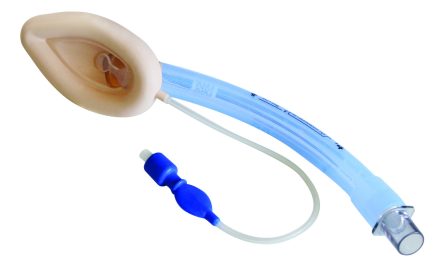What Are Cellular Health Screening Tests?
Cellular health screening tests are medical tests that provide a detailed analysis of the internal functions and health of a person’s cells. These tests go beyond traditional blood tests and physical exams to look at various biomarkers within cells that can indicate risk levels for diseases and health conditions. By examining cells directly, cellular screening tests can often detect potential issues at an earlier stage than standard medical tests.
How Do Cellular Screening Tests Work?
Most Cellular Health Screening Test analyze samples of a person’s blood or other body fluids under a microscope. Specific cells like white blood cells or lymphocytes are isolated from the sample. Analysts then examine the structure and characteristics of these cells closely. Advanced detection methods analyze biomarkers inside cells that provide information about DNA health, mitochondrial function, oxidative stress levels, toxin presence, and more. Computers use artificial intelligence to interpret large amounts of cellular data and determine meaningful biomarkers and screening results. Tests can examine hundreds or even thousands of individual features within each cell.
What Types of Cellular Screening Tests Are Available?
There are several main categories of cellular health screening tests currently available:
DNA Damage and Repair Assessment
This type of test looks at DNA strands within white blood cells for signs of breaks, errors in replication, and how efficiently a person’s cells can repair damaged DNA. Higher than normal DNA damage has been linked to increased cancer and accelerated aging risks.
Mitochondrial Function Screening
Mitochondria are structures within cells that generate energy. Cellular Health Screening Test in this category analyze mitochondrial morphology, membrane potential, and production of reactive oxygen species to assess cellular energy levels and oxidative stress. Poor mitochondrial health raises risks for fatigue, neurological disorders, and age-related diseases.
Telomere Length Measurement
Telomeres are protective caps found at the ends of chromosomes. Their length diminishes every time a cell divides. Shortened telomeres prematurely signal cells to stop dividing and accelerate cellular aging. Telomere length screening provides insight into a person’s biological age versus their chronological age.
Oxidative Stress Evaluation
Oxidative stress occurs when levels of reactive molecules called free radicals outpace the body’s natural antioxidant defenses. High oxidative stress is linked to chronic inflammation and DNA/tissue damage over the long run. These tests measure oxidative stress markers like levels of repaired DNA bases and antioxidant capacity within cells.
Inflammation Monitoring
Low-grade, chronic inflammation in cells is associated with many age-related health conditions. Inflammation screening looks for the presence of inflammatory proteins, enzymes, and other factors residing in or released from cells that can signal overall inflammation levels in the body.
Toxin Biomarker Identification
Cellular screening can detect biomarkers of exposure to toxins like heavy metals, air pollutants, and environmental chemicals by picking up their molecular signatures inside cells. This information allows physicians to link specific health risks to toxin levels.
What Do Cellular Health Screening Tests Results Indicate?
By assessing multiple different aspects of cellular health and function, comprehensive screening tests generate a robust profile of a person’s biological status. Abnormal or high-risk results for certain test categories can flag early warning signs of aging acceleration, disease predispositions, and environmental exposures. Physicians and patients use these insights to support evidence-based lifestyle modifications, dietary changes, and targeted treatment strategies that aim to reverse or slow biological aging processes before age-related illnesses take hold. Cellular screening tests are increasingly being used for preventive healthcare applications.
What Types of Conditions Can Cellular Tests Detect Early On?
Some of the major illnesses and diseases cellular testing may detect precursors or early signs of include:
– Cancer: DNA damage screening can detect DNA changes indicative of developing cancer at a pre-malignant stage.
– Heart disease: Telomere length and inflammation results correlate to cardiovascular disease risks like atherosclerosis.
– Neurological decline: Poor mitochondrial function and high oxidative stress link to neurological disorders like Alzheimer’s and Parkinson’s diseases.
– Autoimmune disorders: Cellular inflammation screening may identify those at risk for autoimmune conditions before clinical symptoms appear.
– Metabolic syndrome: Impaired mitochondrial activity and oxidative stress are early markers for diabetes, obesity, fatty liver disease, and more.
– Chronic fatigue: Low energy production and high toxicity evident in cellular tests often precedes chronic fatigue or chronic Lyme disease diagnosis.
Using The Results to Improve Health Outcomes
By receiving a multidimensional report on their biological age and health risks, individuals can work proactively with doctors to slow aging and lower disease risks through lifestyle adjustments. Those with high cellular damage or other unfavorable results may pursue targeted natural supplements, prescription therapies, or alternative treatments shown effective in scientific studies for cellular rejuvenation based on their individualized test profiles. Periodic re-testing measures health improvements and allows ongoing guidance from healthcare providers. The goal is helping individuals reach and maintain optimal cellular wellness through early intervention and preventive strategies. Overall, cellular screening holds promise for revolutionizing proactive healthcare models focused on prevention instead of passive disease treatment alone.
Cellular health screening tests analyze biomarkers, damage signatures, and functions within a person’s cells to reveal their biological age and risks for age-related diseases at a detailed molecular level. Comprehensive testing of DNA, mitochondria, telomeres, oxidative stress, inflammation, and toxin exposures can identify early warning signs, allow risk reduction, and facilitate preventive treatment when traditional diagnostics may still show normal clinical results. Such advanced screening holds potential for extending healthy lifespans by catching and reversing disease precursors ahead of chronic illness development through targeted lifestyle and medical therapy. Overall cellular wellness will be the future standard of true preventive and proactive healthcare models.
*Note:
1. Source: Coherent Market Insights, Public sources, Desk research
2. We have leveraged AI tools to mine information and compile it



